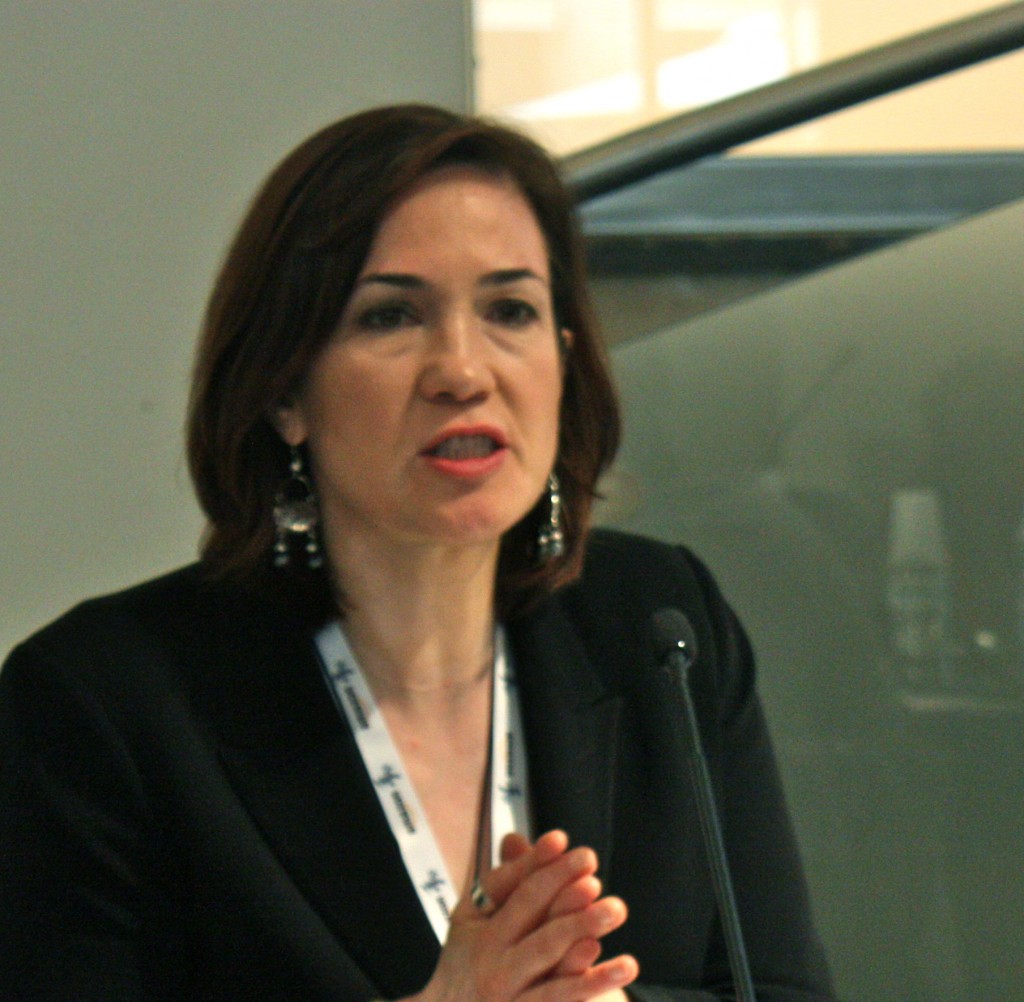Lobbyists, experts and one politician join together to speak about the tools for transparency and accountability

“I’m not too evil. Well, that’s my opinion.”
Helen Darbishire smiled. She is founder of Access Info Europe, an organization dedicated to enforcing a more transparent system of governance in order to inform citizens of the goings-on of the European Parliament.
She also considers herself a sort of lobbyist.
In the Sala del Dottorato in Perugia as a part of the International Journalism Festival, six lobbying experts gathered to discuss the tools for accountability and transparency with regard to lobbies and power.
Defending the right of access to information is Darbishire’s forte, but while the right to know what’s happening inside the government is indeed a human right, she says it is not realistic or even good for politics to get rid of lobbying.
If we are to have the ability to control and understand activities within Parliament, she said, information has to come from two sources: the public bodies who are themselves being lobbied, and the lobbyists and exactly who it is they are speaking to.
An imbalance of information will ultimately result in an imbalance of influence, which is exactly what is happening here in Italy.
“The Italian Freedom of Information Act [FOIA] is really weak,” Darbishire said. They are working to make it stronger with a campaign to uncover what decisions are being made about the EU’s economic future and how those decisions are made.
“Politics should be for the people,” she said. “That’s the original idea of any democratic state.”
Italy at the bottom
Italy in particular is in dire need of reform. Andrea Menapace, co-founder of Diritto di Sapere explains this with a few numbers.
“Italy has one of the most restrictive pieces of legislation in this field,” he stated. “In the world ranking, we are really at the very bottom.”
What does the bottom mean? Out of 95 countries in a Right to Information (RTI) report from September 2013, Italy ranked 88th.
Yet the right to know is included in the Italian constitution, with Article 21 covering the FOIA. If we are going to lead a democratic life, Menapace continued, we need freedom of information.
But to him, it’s not enough. The transparency of lobbyists is certainly one aspect, but becoming lobbyists themselves does not allow for authorities to remain silent. Existing laws are restrictive, but not used, he said. The current system doesn’t work.
In Italy there is a lot of talk and no action, according to Ernesto Belisario, the president of the Association for Open Government, who emphasized the complication of the issue.
“Draft bills mean nothing in this country,” he said. There have been 53 draft bills in Italy, which have sought to regulate lobbies, but not of them has passed. “53 is quite a large number,” he pointed out.
Access for everyone
Luigi Di Maio is Vice President of the Chamber of Deputies, and he too, seemed to agree that 53 proposals is quite a large number. “It’s a sort of fashion to do that,” he said, referring to Members of Parliament who try to submit as many proposals as possible. “It’s sort of a game, [but] we have to turn it into a serious activity.” The Parliament in Italy needs to regulate itself, he added.
It seems like this panel came at a good time, because – in the words of Di Maio – only four days ago, the government passed an act that enforces checks on who has access to the Parliament and why. Currently, he estimates there are over 100,000 people who are accredited to enter the Parliament.
“We are surrounded by a huge population of persons that have badges to get to any place in Parliament with no limitations,” Di Maio said. “I want to understand why they have it.”
This is, however, not to say that this access should be revoked. “We want to have information about who comes to Parliament,” he said. “Everybody should have access to it.”
Belisario seems to agree. “It’s important to establish a [lobby] register, and provide that degree of transparency,” he said. However, he continued, “we’re not going to solve the problem by [simply] setting up a register. The phenomenon is much more deeply rooted than we think. We’re targeting lobbyists that are seeking legitimacy but not yet having impact.”
Opening the Parliament doors
Pascoe Sabido is on the team of Corporate Europe Observatory and currently runs the Politics for People campaign, which works towards lobby transparency and balanced expert groups, among others.
Regarding a lobby register, he believes that alone, it is not enough. “It’s a first step to see who’s influencing the decision-makers,” he said. Perhaps even more importantly, though, “it’s about politicians and parliamentarians being proactive.” It’s “proactive transparency”, as he called it. It implies politicians taking the initiative and publicizing the information about whom they’re meeting and why on their own blog or website, for example.
Di Maio appeared to be taking on a similar approach. “When I go around and talk about [transparency], it is considered a secondary topic to, say, unemployment,” he said. “I don’t agree. If there is no transparency, you cannot understand the economic policies, for example.” He therefore plans to stream his first meeting with experts in the field, and make it possible for people to follow. “It is better to move outside the closed door of parliament,” he added.
Menapace took this a step further. “All these games of transparency and participation have to be played in an open government field,” he said. “The government needs to open less portals and more doors.”